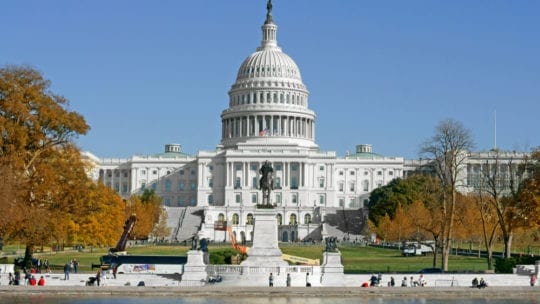
Earlier this year, I authored the first of a two-part series about how watching the political scene can provide PR lessons that may be helpful throughout your career. Below is part two.
As I continue this tuition-free class, I am more convinced than ever that paying attention to the occurrences in D.C. can provide lessons that will supplement those learned in communications school. It’s important to understand that keeping up with daily political news will make you a better PR person. The reason is because many of politics' tactics and strategies can also apply to PR. The only way to really know what’s happening in all aspects of the news and what it might mean for the brands you represent is to read major pubs and trade magazines. Also, pay attention to congressional legislation. These should be must-do's for everyone in our business.
There were many important lessons from politics this year that apply to PR. Here are a few I think are most valuable:
In Truth
- When an executive orders a PR pro to lie to the media it’s time for the communicator to seek other employment. Once you lie and are caught, any credibility you had with the press will be gone. (In our business, once you are caught telling even a small lie, it is one lie too much.)
- Investigative journalists uncover government and corporate lies.
- When preparing press releases and speeches or in conversations with the media, the PR pro should remember the lines from “Marmion,” Sir Walter Scott’s 1808 poem. “Oh what a tangled web we weave /When first we practice to deceive.”
Be Nice
- Never insult the press. Be professional. Keep your dignity even when answering questions you dislike. Remember that a reporter almost always will come out the winner. Also, PR pros need reporters more than reporters need PR people.
- Banning a reporter from an open event because of questions the brand didn’t like at a previous media conference results in massive negative media coverage.
Crisis PR
- When a brand is in a PR crisis, it is crucial for everyone to be on the same page. Changing an answer on a daily basis will shatter your brand’s reputation. This leads to the next point…
- During a PR crisis always make sure everyone has the same message for public consumption. A high-profile person’s statements rarely fade away after a few news cycles. Like a PR crisis, they can be used as examples in future news stories. (A spokesperson needs to stay on point. If she goes off point, cancel future media appearances and find another spokesperson.)
- Correcting statistical errors is common and while embarrassing, unless done deliberately, it usually is not a big deal. But attempting to reverse an opinion often is greeted with skepticism and results in additional negative coverage.
- During a PR crisis, a media-savvy lawyer should share leadership of the crisis team with a former hard-news journalist. It’s preferable that the former journalist has crisis experience.
- A company with a long history of problems should expect negative or cynical media coverage when it attempts to correct the issues. Despite the conventional wisdom, negative coverage often continues until the media decides it’s time to move on.
Other Lessons
- An appalling statement, even uttered in a closed-door meeting, can leak, particularly when they’re offensive. Always conduct yourself as a professional and never make comments about individuals that are in poor taste.
- A conservative media strategy advocates limiting media exposure and engaging with the press only when you have positive news. An aggressive strategy has the brand being proactive so it can promote a viewpoint. If you choose the latter strategy, it is imperative that talking points remain consistent. Muddled messages result in negative press.
- Never announce a decision until it’s finalized. Making a possibility public before a final decision is made gives a story additional legs, which often results in negative coverage.
- Good news stories last a day; bad news stories tend to linger. The media can and do revive them forever.
- Don’t act rashly: An overly hasty response can exacerbate the situation and generate additional negative media coverage.
- Limit replies to media stories: Attacking media coverage leads to the media defending its coverage, resulting in additional stories rehashing the allegations. PR people complaining of media unfairness will not stop reporters from doing their jobs.
- If you have a grudge against a colleague, keep it to yourself. It can lead to negative media coverage for you. The PR business is a small world. You never know when the person you denigrate today might be a determining factor in your career tomorrow.
Arthur Solomon was SVP/senior counselor at Burson-Marsteller. A frequent contributor to PR News, he is on the Seoul Peace Prize nominating committee.
Reach him at: [email protected]or [email protected]
